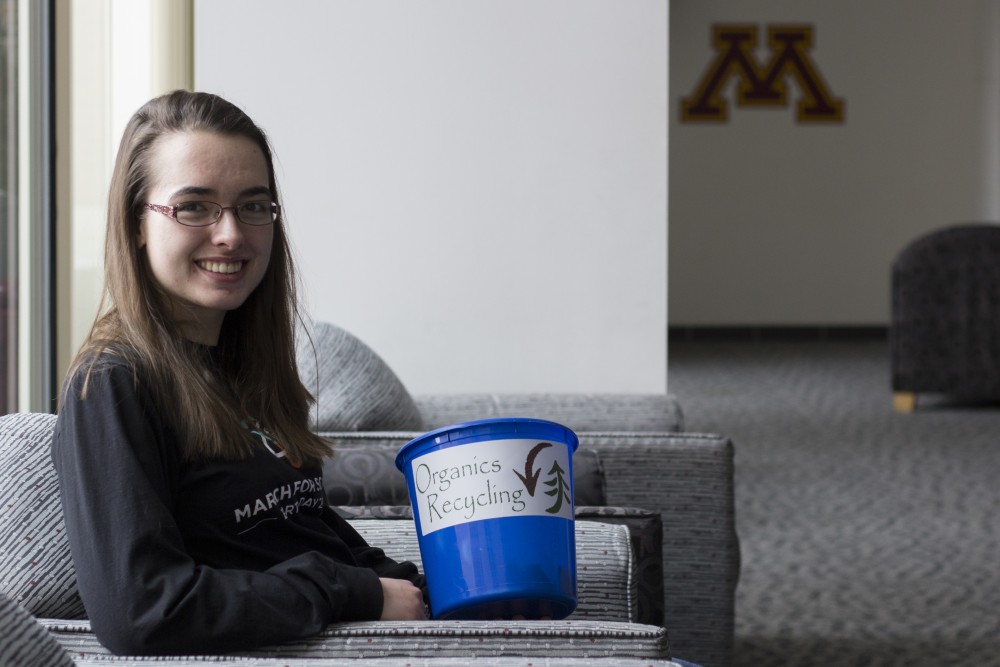Organics recycling will be a full-time part of University of Minnesota residential halls in fall 2018.
Approved on Dec. 4, the new composting program is based on a successful organics recycling pilot in Yudof Hall last spring.
Housing and Residential Life, the Minnesota Student Association and the University of Minnesota Recycling Program worked with Claudia Althoen, MSA student project lead for organics recycling. Althoen led the pilot in her apartment-style student housing from Mar. 13 to Apr. 25.
A junior in environmental sciences policy and management, Althoen said the idea stemmed from her hope to improve sustainability on campus.
“It’s surprising to see the results for the pilot … went better than expected,” Althoen said.

The program allows students to dispose of food waste and other biodegradable materials that will be composted into soil.
Dana Donatucci, University of Minnesota Recycling Supervisor, said the shift to organics will generate an estimated 20 percent reduction in residence hall waste costs.
He added that based on past work, outgoing waste from residence halls is about 25 percent compostable material, all of which is currently burned for disposal instead of being composted.
MSA and HRL are working on a survey for spring 2018 residence halls to work out details of the organics program. A secondary pilot in a traditional residence hall will take place in the spring before final implementation in fall 2018.
Talk of organics recycling has been in the works for a couple of years, said Daniel Elliott, associate director of facilities with HRL at the University.
“It was great last year when Claudia had approached the department … that was sort of the catalyst, you know, to … get us moving it forward,” Elliott said.
Will Macheel, director for MSA’s Sustainability Committee and applied economics sophomore, said organics recycling is one of the most common topics students bring to his attention.
He added that implementing organics recycling around the residential halls sends a positive message about environmental sustainability to the campus community.
Macheel added that he hopes to educate students about the environmental benefits of organics recycling, including how the process reduces methane production, a greenhouse gas more environmentally harmful than CO2.
“We’re excited to see not only just what happens with the residence halls, but … the overall plans for campus expansion, as those are kind of being developed right now within the campus administration,” Macheel said.
Donatucci said it will take at least two years before organics recycling is added to all waste stations around campus.
Tauby Yonah Mintz, Yudof resident and junior pursuing a bachelor of individualized studies degree, said she started composting as soon as she learned of the pilot in Yudof, though she has noticed that some students are wary of participating.
“I think students can really benefit from it, and also the environment can really benefit from it,” Mintz said. “I feel like I’m making a difference.”








